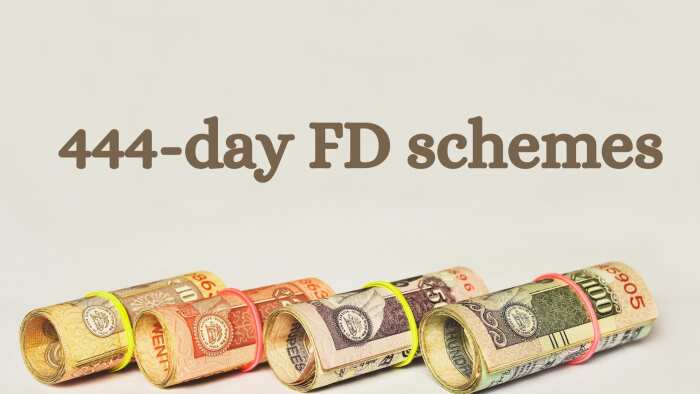RBI Announces auction sale of Government securities worth Rs 32,000 crore
The underwriting commission will be credited to the current account of the respective primary dealers with the Reserve Bank of India (RBI) on the day of the issue of securities. This auction presents an opportunity for primary dealers to participate in the underwriting process and contribute to the government's financing activities.
)
The Reserve Bank of India (RBI) has declared an auction for the sale of Government Securities amounting to Rs 32,000 crore. Scheduled for Friday, this auction aims to facilitate the sale (re-issue) of Government Securities through a multiple price-based method.
Primary dealers can electronically submit their bids via the E-Kuber System between 09:00 A.M. and 09:30 A.M. on Friday.
"Underwriting Auction for Sale of Government Securities for Rs 32,000 Crore on April 26, 2024: The Government of India has announced the sale (re-issue) of Government Securities, as detailed below, through auctions to be held on April 26, 2024," stated a release by the RBI.
According to the RBI, primary dealers must fulfill the Minimum Underwriting Commitment (MUC) and minimum bidding commitment under Additional Competitive Underwriting (ACU) for the auction.
The underwriting commission will be credited to the current account of the respective primary dealers with the Reserve Bank of India (RBI) on the day of the issue of securities. This auction presents an opportunity for primary dealers to participate in the underwriting process and contribute to the government's financing activities.
The auction underscores the government's sustained efforts to manage its borrowing program efficiently and meet its funding requirements. With the auction slated for April 26, the RBI urges primary dealers to prepare and actively participate to support the smooth conduct of the auction, ensuring successful outcomes for all stakeholders.
Understanding Government securities (G-Secs)
A Government Security (G-Sec) is a tradable instrument issued by the Central Government or the State Governments, acknowledging the Government's debt obligation. These securities can be short-term (usually termed treasury bills, with original maturities of less than one year) or long-term (usually termed Government bonds or dated securities with an original maturity of one year or more).
In India, the Central Government issues both treasury bills and bonds or dated securities, while State Governments issue only bonds or dated securities, known as State Development Loans (SDLs). G-Secs are considered practically risk-free gilt-edged instruments, carrying no risk of default.
Get Latest Business News, Stock Market Updates and Videos; Check your tax outgo through Income Tax Calculator and save money through our Personal Finance coverage. Check Business Breaking News Live on Zee Business Twitter and Facebook. Subscribe on YouTube.
RECOMMENDED STORIES

Revised New Tax Regime Slabs: Is your annual income Rs 12,90,000? Will you be taxed on Rs 15,000, or Rs 12,9000? Know here

Retirement Planning: How one-time investment of Rs 10,00,000 can create Rs 3,00,00,000 retirement corpus
10:01 AM IST









 RBI imposes Rs 68 lakh penalty on 2 banks
RBI imposes Rs 68 lakh penalty on 2 banks RBI asks NBFCs to become part of Unified Lending Interface for better financial inclusion
RBI asks NBFCs to become part of Unified Lending Interface for better financial inclusion RBI to issue Rs 50 notes with Governor Sanjay Malhotra's signature
RBI to issue Rs 50 notes with Governor Sanjay Malhotra's signature Ujjivan Small Finance Bank submits application for universal banking licence to RBI
Ujjivan Small Finance Bank submits application for universal banking licence to RBI  RBI may begin rate easing cycle with 25 bps cut, add durable liquidity: Morgan Stanley
RBI may begin rate easing cycle with 25 bps cut, add durable liquidity: Morgan Stanley